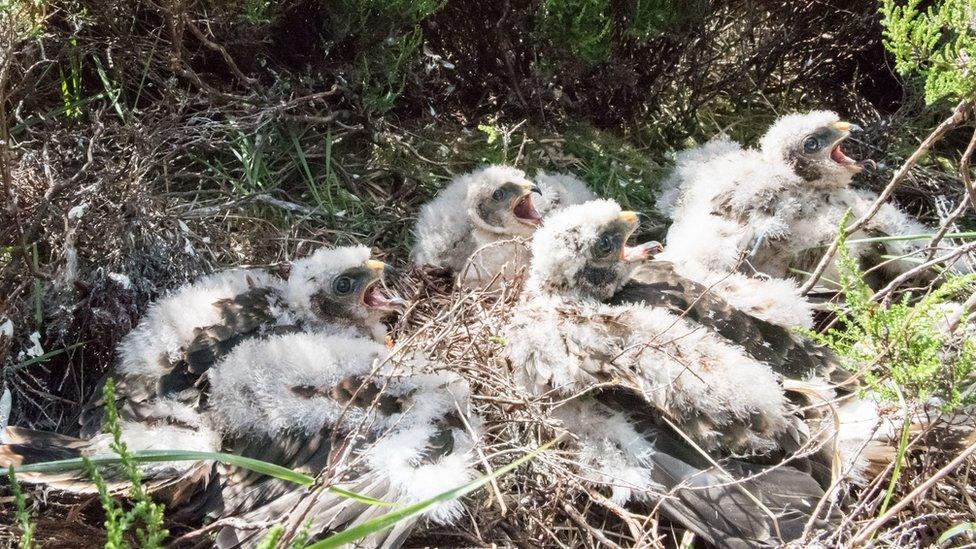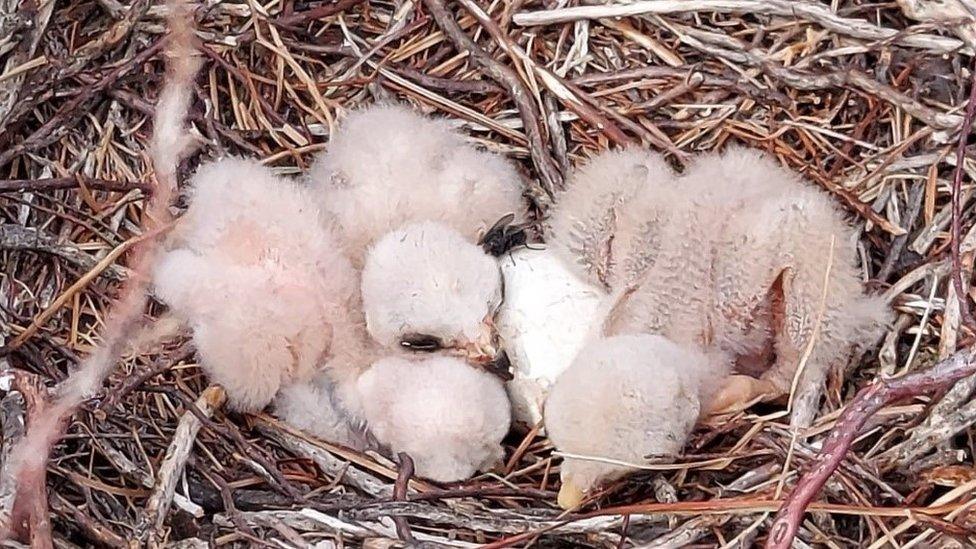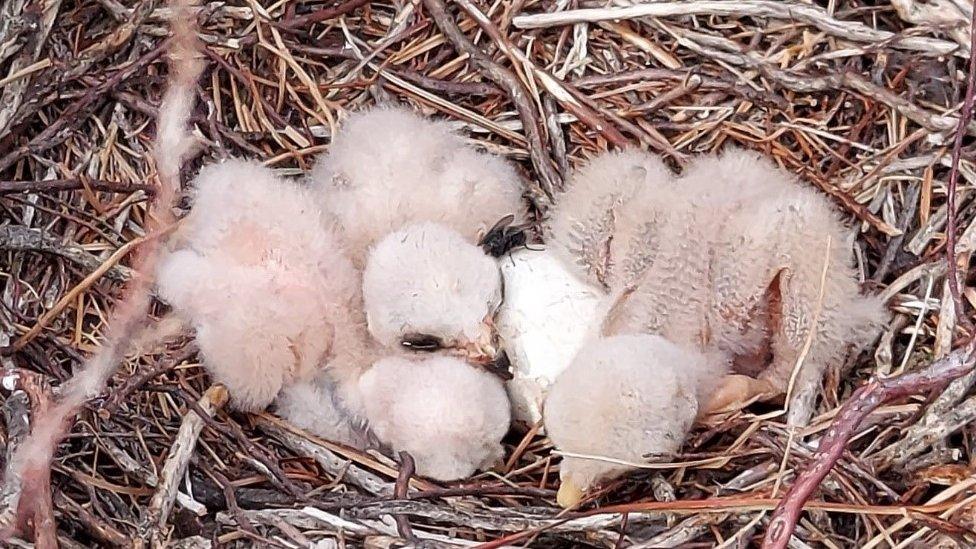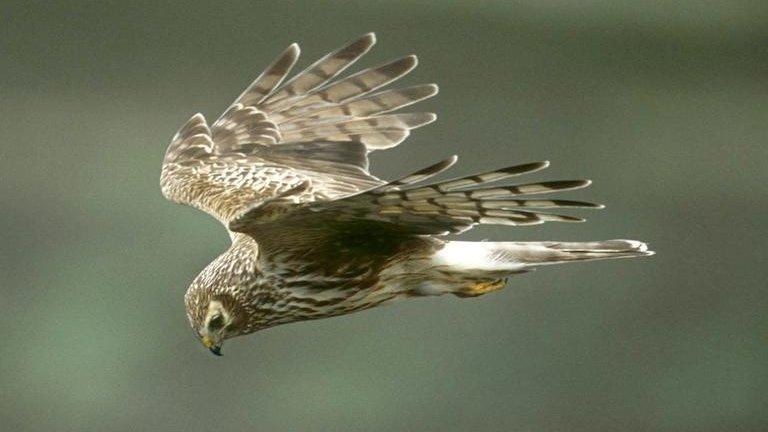Successful breeding year for Peak District hen harriers
- Published

In 2013 hen harriers were on the brink of extinction
The National Trust said it has had its most successful breeding year for rare hen harriers in the Peak District for more than a decade.
The charity said seven youngsters had successfully fledged from multiple nests in the High Peak.
It follows work to encourage birds of prey to live in the national park.
In 2013 hen harriers were on the brink of extinction in England when no birds successfully fledged from nests.
Hen harriers are the most threatened bird of prey in the country.
This is due to historic persecution but also because they prey on red grouse chicks to feed their young.
This brings them into conflict with commercial shooting estates.

This year seven youngsters fledged from nests in the High Peak
The National Trust said it had been working to create an environment to encourage a more diverse range of moorland plants to grow, helping support wildlife such as small mammals that the birds rely on for food.
Craig Best, general manager of the National Trust in the Peak District, said: "A great deal of work has gone into encouraging more breeding pairs of these majestic birds to the Peak District, so this is brilliant news.
"The presence of the birds indicates a plentiful and healthy food source, which shows the work we have done so far to improve the landscape is starting to provide ideal conditions for different species to thrive."

The young birds have been fitted with tracking tags to monitor their progress
The success in the High Peak comes after two nests failed earlier in the season.
To help monitor the young birds' progress, they have been fitted with tracking tags.
Visitors and residents are being encouraged to help with conservation efforts for the birds by staying on footpaths and keeping dogs on leads during the ground nesting season.

Follow BBC East Midlands on Facebook, external, on Twitter, external, or on Instagram, external. Send your story ideas to eastmidsnews@bbc.co.uk, external.
Related topics
- Published14 August 2022

- Published12 May 2022

- Published9 August 2021

- Published9 August 2013
